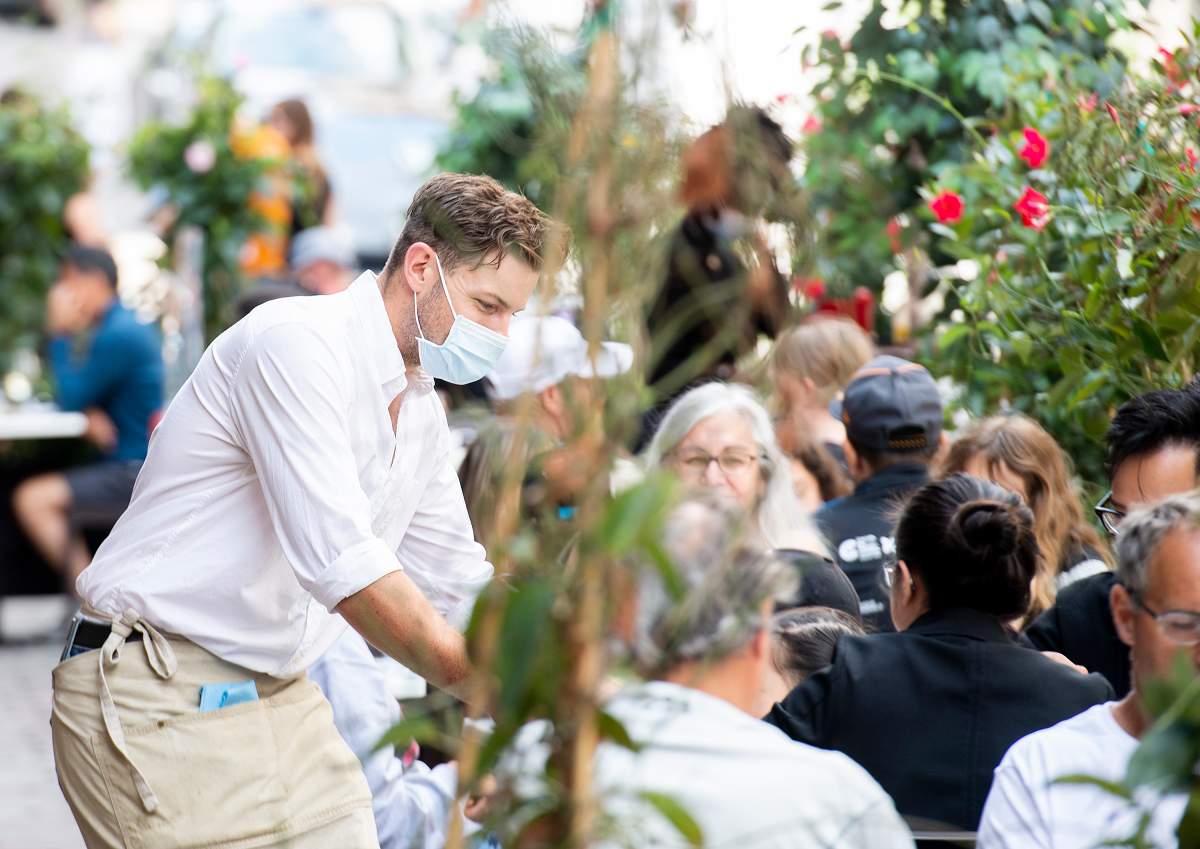Most Canadian provinces are still on the fence about whether they will implement a domestic COVID-19 “vaccine passport” to allow access to some public places, but what leeway do private businesses have to introduce their own policy?

According to lawyer Cara Zwibel, who is also the director of the Fundamental Freedoms Program at the Canadian Civil Liberties Association, businesses can turn away whoever they like — as long as it isn’t discriminatory under human rights statutes.
This means that if someone is not vaccinated for reasons out of their control, such as medical or religious reasons, and are turned away by a business, they could have a case with a provincial human rights tribunal.
However, if someone voluntarily decided not to be vaccinated, Zwibel said it is not as clear-cut whether it could be defined as discriminatory.
“If they had a conscientious objection to being vaccinated it’s possible this might qualify as discrimination based on creed,” she said. “I’d say it would be a harder claim to establish than refusal for health or religious reasons.”
If businesses could find a way to accommodate those unvaccinated, they could potentially carry on with a vaccine policy, Zwibel pointed out.

Zwibel said a vaccine policy would be similar to Canada’s mask mandate, which also allowed exceptions for those who could not wear a mask.

Get breaking National news
However, she said there were many instances of businesses flat-out refusing service to anyone not wearing a mask and some complaints were made to the Human Rights Tribunal.
“What’s laid out in law or what’s in theory should be happening, it’s not always obviously reflected in the real world,” she said.
The idea of a domestic vaccine passport is catching on in some parts of the world, though.
On Monday, France announced a “pass sanitaire,” which citizens will need in early August to access restaurants, bars, movie theatres or to take a train. The pass shows proof of vaccination or a negative COVID-19 test.
As for Canada, Prime Minister Justin Trudeau said domestic vaccine passports are up to provinces to decide, and some are already making moves.
On July 8, Quebec announced that they would introduce a vaccine passport by the fall — but would only use it to control access to locations like gyms, bars and restaurants if there is an outbreak.
Manitoba, on the other hand, is issuing proof of vaccination cards that allow people to skip quarantine after returning from out-of-province, and expanded access to health care facilities like hospitals and personal care homes.

While those policies are government-mandated, Zwibel said the issue if the idea catches on with private businesses is that “the decision to be vaccinated becomes less and less a voluntary one.”
“Being vaccinated is something that should be a choice,” she said. “You do have the right to make a decision for yourself about medical treatment, including whether you’re going to be vaccinated.”
As restaurants across the country are hosting more and more people due to loosening restrictions, industry association Restaurants Canada’s vice president, James Rilett, said that businesses are talking about the idea of their own COVID-19 policies, but he’s not seeing any take action yet.
“Most people aren’t really sure whether that would be allowed, whether they could put in their own requirements to check people’s vaccination records,” he said. “The industry is usually very welcoming, we’re used to greeting people and hosting them. So it kind of goes against what the industry usually does.”
Another issue with such a policy is having young staff enforce it, Rilett said, and some employers have flat-out refused to put their staff in that position.
Already staff have had issues enforcing a mask policy earlier in the pandemic, he said.
“There have been flare-ups here and there,” Rilett said. “It was never a comfortable situation.”
-With files from Global News’ Leslie Young









Comments
Want to discuss? Please read our Commenting Policy first.